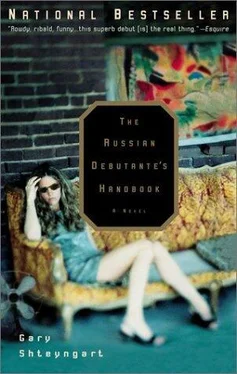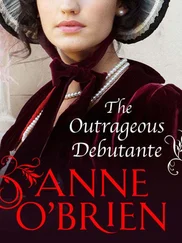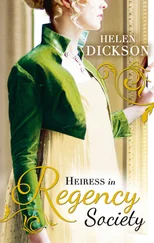Gary Shteyngart - The Russian Debutante's Handbook
Здесь есть возможность читать онлайн «Gary Shteyngart - The Russian Debutante's Handbook» весь текст электронной книги совершенно бесплатно (целиком полную версию без сокращений). В некоторых случаях можно слушать аудио, скачать через торрент в формате fb2 и присутствует краткое содержание. Город: New York, Год выпуска: 2003, ISBN: 2003, Издательство: Riverhead Books, Жанр: Современная проза, Юмористическая проза, на английском языке. Описание произведения, (предисловие) а так же отзывы посетителей доступны на портале библиотеки ЛибКат.
- Название:The Russian Debutante's Handbook
- Автор:
- Издательство:Riverhead Books
- Жанр:
- Год:2003
- Город:New York
- ISBN:0-7865-4177-6
- Рейтинг книги:4 / 5. Голосов: 1
-
Избранное:Добавить в избранное
- Отзывы:
-
Ваша оценка:
- 80
- 1
- 2
- 3
- 4
- 5
The Russian Debutante's Handbook: краткое содержание, описание и аннотация
Предлагаем к чтению аннотацию, описание, краткое содержание или предисловие (зависит от того, что написал сам автор книги «The Russian Debutante's Handbook»). Если вы не нашли необходимую информацию о книге — напишите в комментариях, мы постараемся отыскать её.
and
. The Russian Debutante’s Handbook Bursting with wit, humor, and rare insight,
is both a highly imaginative romp and a serious exploration of what it means to be an immigrant in America.
The Russian Debutante's Handbook — читать онлайн бесплатно полную книгу (весь текст) целиком
Ниже представлен текст книги, разбитый по страницам. Система сохранения места последней прочитанной страницы, позволяет с удобством читать онлайн бесплатно книгу «The Russian Debutante's Handbook», без необходимости каждый раз заново искать на чём Вы остановились. Поставьте закладку, и сможете в любой момент перейти на страницу, на которой закончили чтение.
Интервал:
Закладка:
The head of the group was not a captain or any kind of sailor. He was, as might be expected, dressed in sunglasses and Versace, as were the two associates to his right and left. All three had classic Indo-European faces: high, sloping foreheads; thin, albeit curved, noses; hazy traces of facial hair around the upper lip. The rest of the coterie was far coarser in appearance—bigger men with bushier mustaches, dressed in track suits. Half looked like Stalin, the other half like Beria. Several of them even wore sailor caps, although the crest of whatever navy they had once belonged to had long been removed.
“I am Valentin Melashvili,” the leader announced to Vladimir in a rumbling Bolshoi-grade bass. “The crew of the Sovetskaya Vlast’ express their admiration for you, Vladimir Borisovich. We have just heard of your rampage through Washington on Mr. Rybakov’s behalf. And, of course, we all follow the exploits of your enchanting mother, Yelena Petrovna, in the New Russian Word and the Kommersant Bizness Daily. Sit, sit… No, no, not there. At the head of the table, of course. And who is this gentleman?”
The Serb waved awkwardly, his hair an incongruous yellow mop in a sea of black curls. “Vladko, go outside,” Rybakov instructed. “We are with friends now. Go!”
First they disarm the Serb, then they throw him out altogether. “Death!” Vladimir’s Fear-Money gland was shouting. “Death is the very opposite of money.”
“Well, to begin with,” Melashvili said, “a toast to the Groundhog, our friend, our benefactor, our great mountain eagle circling the steppes… Za evo zdarovye! ”
“Za evo zdarovye!” Vladimir cheered as he plucked a shot glass off the table. Now what the hell was he cheering about? Get a hold of yourself, Volodya.
“Za evo zdarovye!” Rybakov shouted.
“Za evo zdarovye,” the other Georgians said simply.
“So, here’s a question for you, Vladimir,” the charming Melashvili said. “I know you’ve been to university, so you might know the answer to this one. Question: Who on the Lord’s earth can match the hospitality and generosity of the Georgian people?”
Obviously a trick question. “No one,” Vladimir started to say, but Melashvili interrupted him. “The Groundhog!” he cried. “And to prove it, the Groundhog sends you fifty cartons of Dunhill cigarettes. Pushka, fetch the smokes! Look here. Five hundred packs. Ten thousand cigarettes. Sealed in cellophane to maximize freshness.”
Dunhills. Vladimir could easily unload them for two dollars a pack. He could set up a little stand on Broadway. He could call out to the jaded masses in his best immigrant accent, “Dunhill! Dunhill! Top 100 percent number one brand! I give special price! Only just for you!” He could make an even thousand dollars, which, added to the five hundred Mr. Rybakov had given him, would net him $1,500.00 for the day. Now, if he subtracted that amount from the $32,280 he needed for Francesca to love him forever, that would leave him… Let’s see, eight minus zero is eight, then carry the one… Ah, math was tricky business. Vladimir never had the patience. “Thank you, Mr. Melashvili, sir,” he said, “but, honestly, I do not deserve such favor. Who am I? I am only this young fellow.”
Melashvili reached over to ruffle Vladimir’s hair, soft and pliable from the application of Frannie’s Aboriginal Sunrise shampoo. “What gentle manners,” the Georgian said. “Truly, you are a child of St. Petersburg. Please take the Dunhills. Enjoy the European quality in good health. Now, may I ask another question? What do our Golden Youth wear on their wrists these days?”
Vladimir was stumped. “It’s a difficult question. Perhaps—”
“Personally,” Melashvili said, “I think nothing will do but this genuine Rolex watch. Recently acquired from Singapore. Completely legal. The control number has been removed from the back.”
Even better. At least fifteen hundred dollars from some fence on Orchard Street. Together with his previous loot, an even three thousand. “I will accept the Rolex with a heavy heart,” Vladimir said, “for how will I ever repay your kindness?” Hey, not bad! he thought. He was getting the hang of this. He executed a little bow, the kind of bow they all seemed to favor—Georgian, Russian, and Serb alike.
He had to admit it was a pleasure dealing with these people. They seemed so much more polite and cultured than the work-obsessed Americans who crowded Vladimir’s city. Sure, they likely committed all sorts of unfortunate violence in their off-hours, but then again, look how articuate this Melashvili was! He probably dropped in on Vladimir’s uncle Lev whenever he was in Petersburg and they went, together with their wives, to the Hermitage and maybe for some jazz afterward. Bravo! Yes, Vladimir was ready to listen and learn from these people. Maybe he could even introduce them to Fran. He did his little bow again. How can I repay your kindness? Indeed.
Melashvili bristled: “No, not our kindness at all,” he said. “We are merely travelers of the seas. The Groundhog! The Groundhog is to be thanked. Isn’t that so, Aleksander?”
“Yes,” Mr. Rybakov said. “Let us all thank my little Hog.”
The Georgians whispered their thank yous, but this was hardly enough for Mr. Rybakov. “Let’s go around the room,” he shouted. “The way they do on that fat schwartze ’s talk show. Let’s talk about what we like most about working for the Groundhog.” Rybakov thrust an imaginary microphone at Pushka. “Pushka, you say what?”
“Huh?”
“Pushka!”
“Well,” Pushka said. “I guess I’ll say that I like working for the Groundhog.”
“No, but what specifically,” the Fan Man said. “‘I like the Groundhog, because…’”
“I like the Groundhog because…” The ensuing two minutes were silent enough for Vladimir to hear the masculine beating of his new Rolex. “I like him because…Because he is merciful,” Pushka finally said to everyone’s relief.
“Good. Now state an example.”
Pushka pulled at his moustache and turned to Melashvili who nodded in encouragement. “An example. State an example. Let me think. Well, I’ll give you an example. Back in eighty-nine my brother set up a little black-market currency exchange by the Arbat in Moscow, knowing full well that the Groundhog had already claimed that territory as his own…”
“Oh, no!” several voices said. “God help him!”
“Right, you’re expecting the worst,” said Pushka, his tone getting stronger as he reached the moral of the story. “But the Groundhog didn’t kill him. He could have, but all he did was take his wife. Which was fine, because everyone took his wife. She was that kind of a wife. And so—”
“And so he taught him a lesson without resorting to violence,” Melashvili filled in quickly. “You’ve proved your point: The Groundhog is merciful.”
“Yes,” the Georgians muttered. “The Groundhog is merciful.”
“Very good!” Mr. Rybakov said. “That was a good example and well told. Bravo, Pushka. Now let’s continue going around the table. Daushvili, you say what?”
“I’ll say…” The big man looked Vladimir over, curling a mangy eyebrow until it reminded Vladimir of a sea horse resting on its side, something he had once seen in an aquarium or perhaps only in a dream.
“I like the Groundhog because…” Rybakov prompted him.
“I like the Groundhog because… Because he holds no prejudice against the southern nationalities,” Daushvili said. “Sure, sometimes he’ll call me a Georgian black-ass, but only when he needs to put me in my place or when he’s in one of his lighter moods. As for persons of the Hebrew race, like our esteemed guest Vladimir Borisovich here, I’d say the Groundhog is positively awed by them. ‘Three Yids,’ he’s always saying. ‘All you need is three Yids to rule the world…’”
Читать дальшеИнтервал:
Закладка:
Похожие книги на «The Russian Debutante's Handbook»
Представляем Вашему вниманию похожие книги на «The Russian Debutante's Handbook» списком для выбора. Мы отобрали схожую по названию и смыслу литературу в надежде предоставить читателям больше вариантов отыскать новые, интересные, ещё непрочитанные произведения.
Обсуждение, отзывы о книге «The Russian Debutante's Handbook» и просто собственные мнения читателей. Оставьте ваши комментарии, напишите, что Вы думаете о произведении, его смысле или главных героях. Укажите что конкретно понравилось, а что нет, и почему Вы так считаете.












